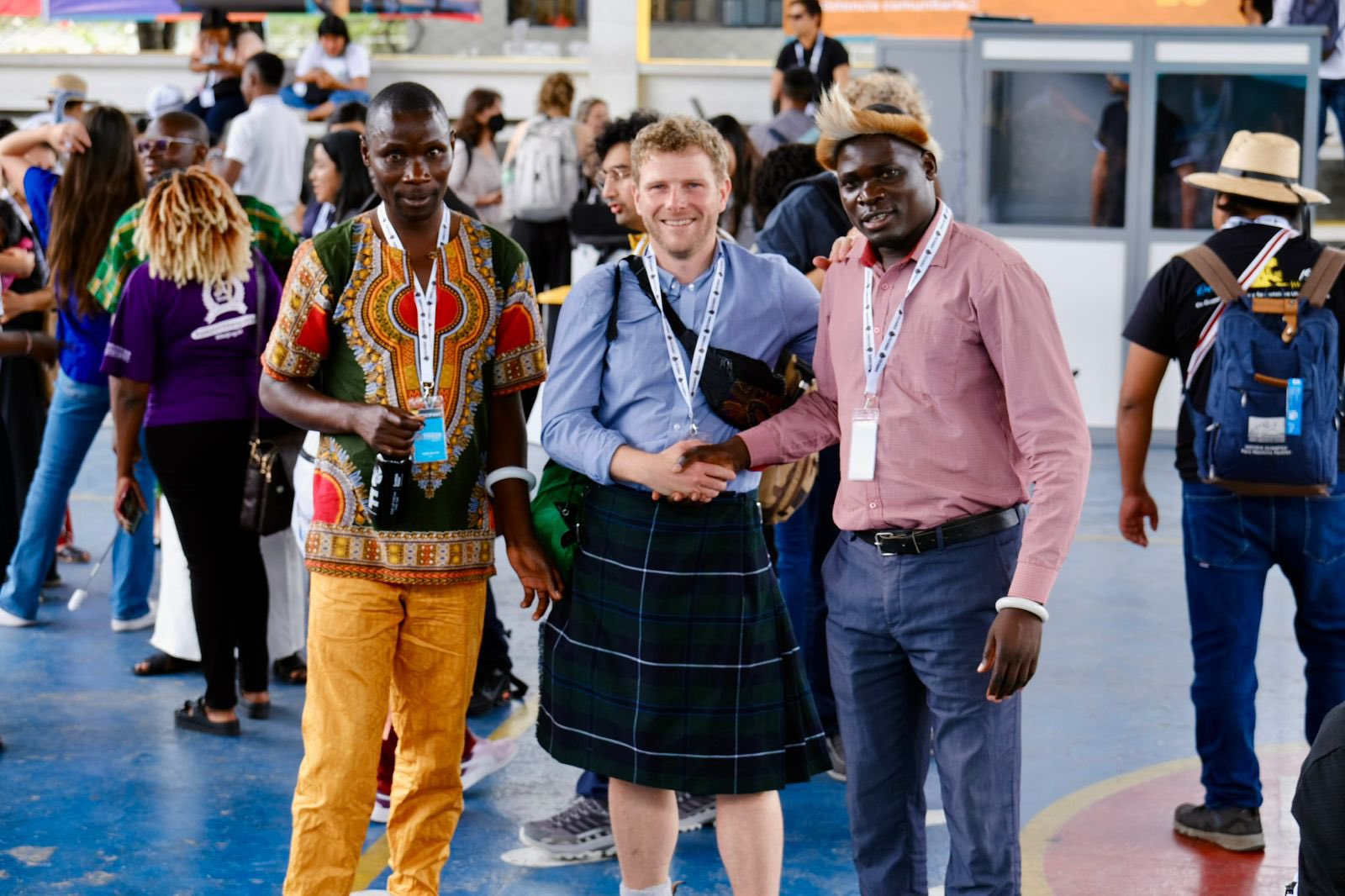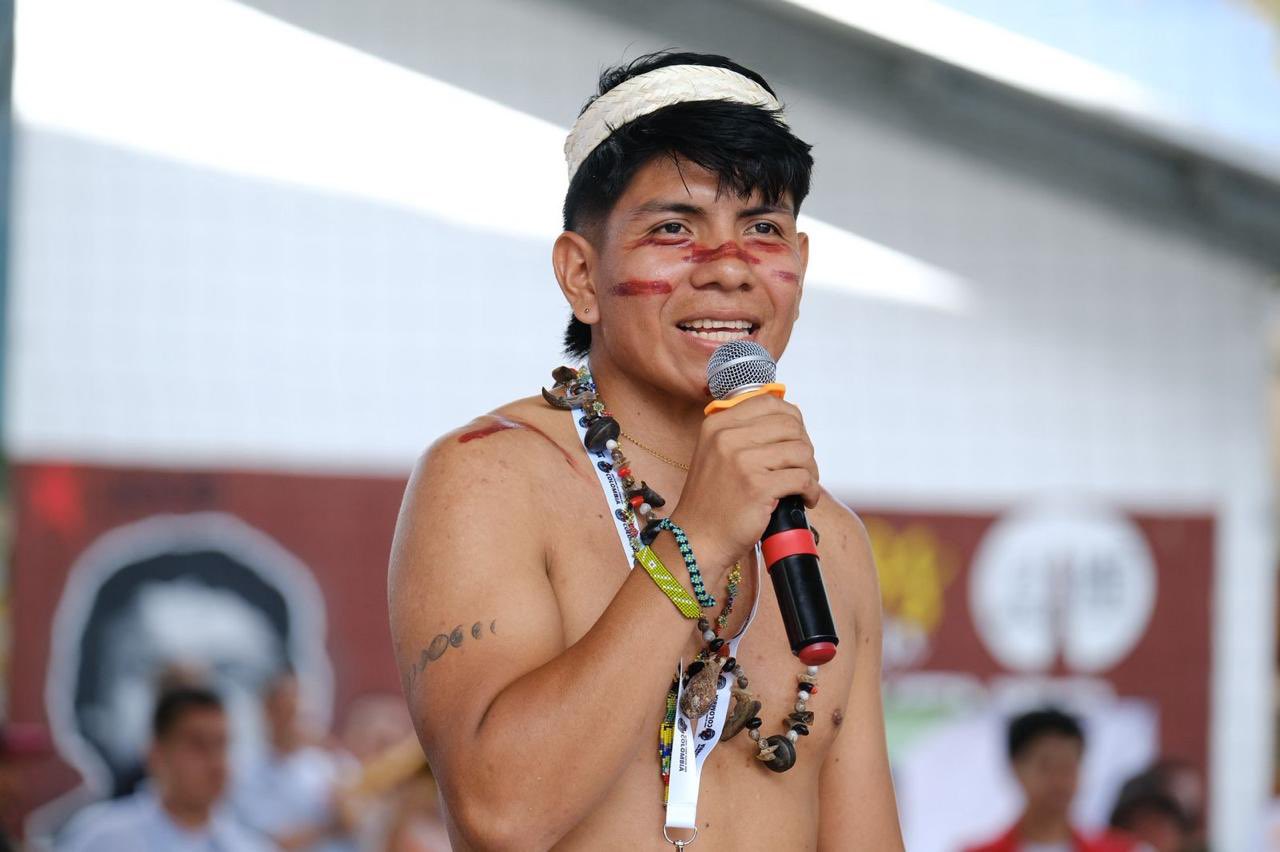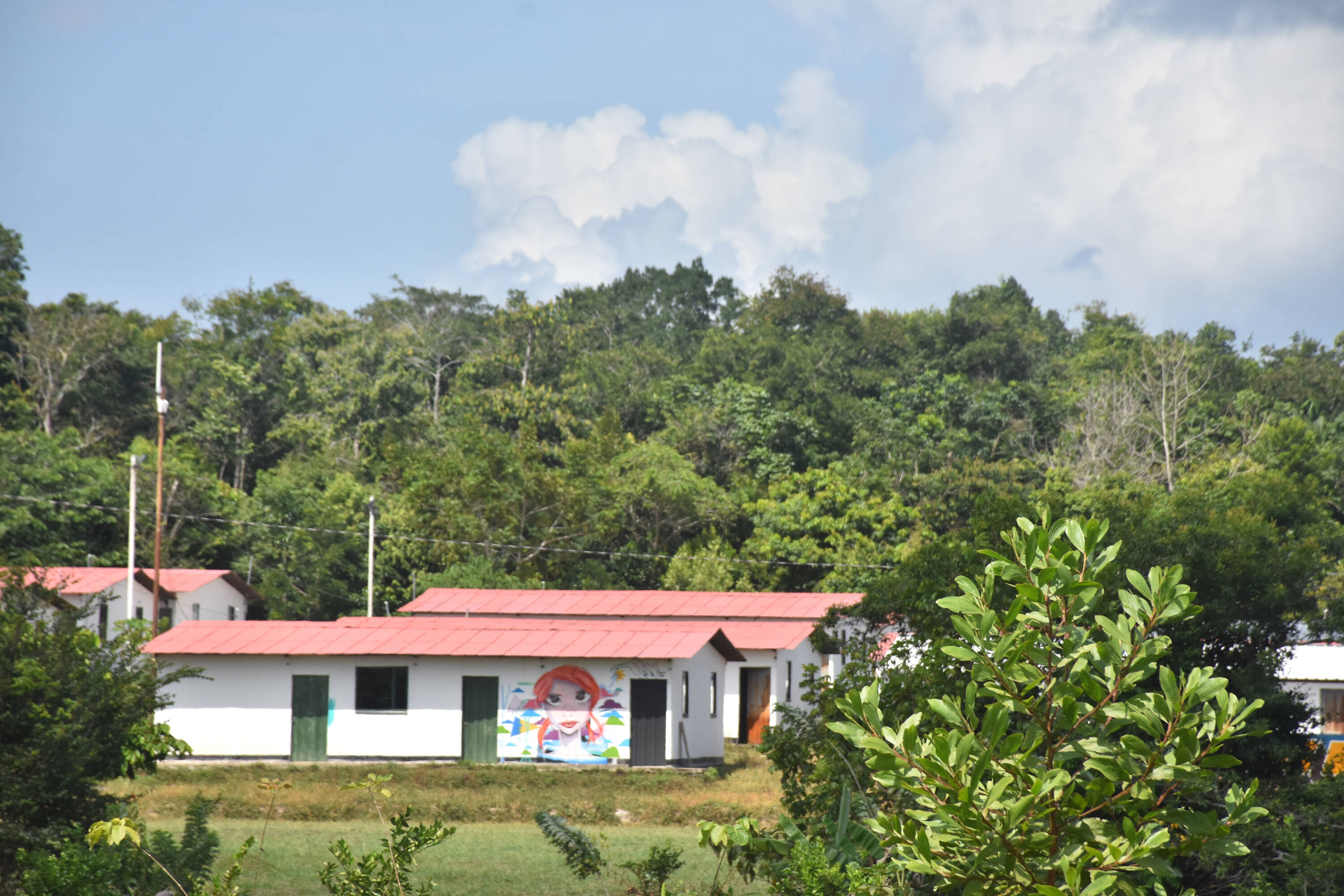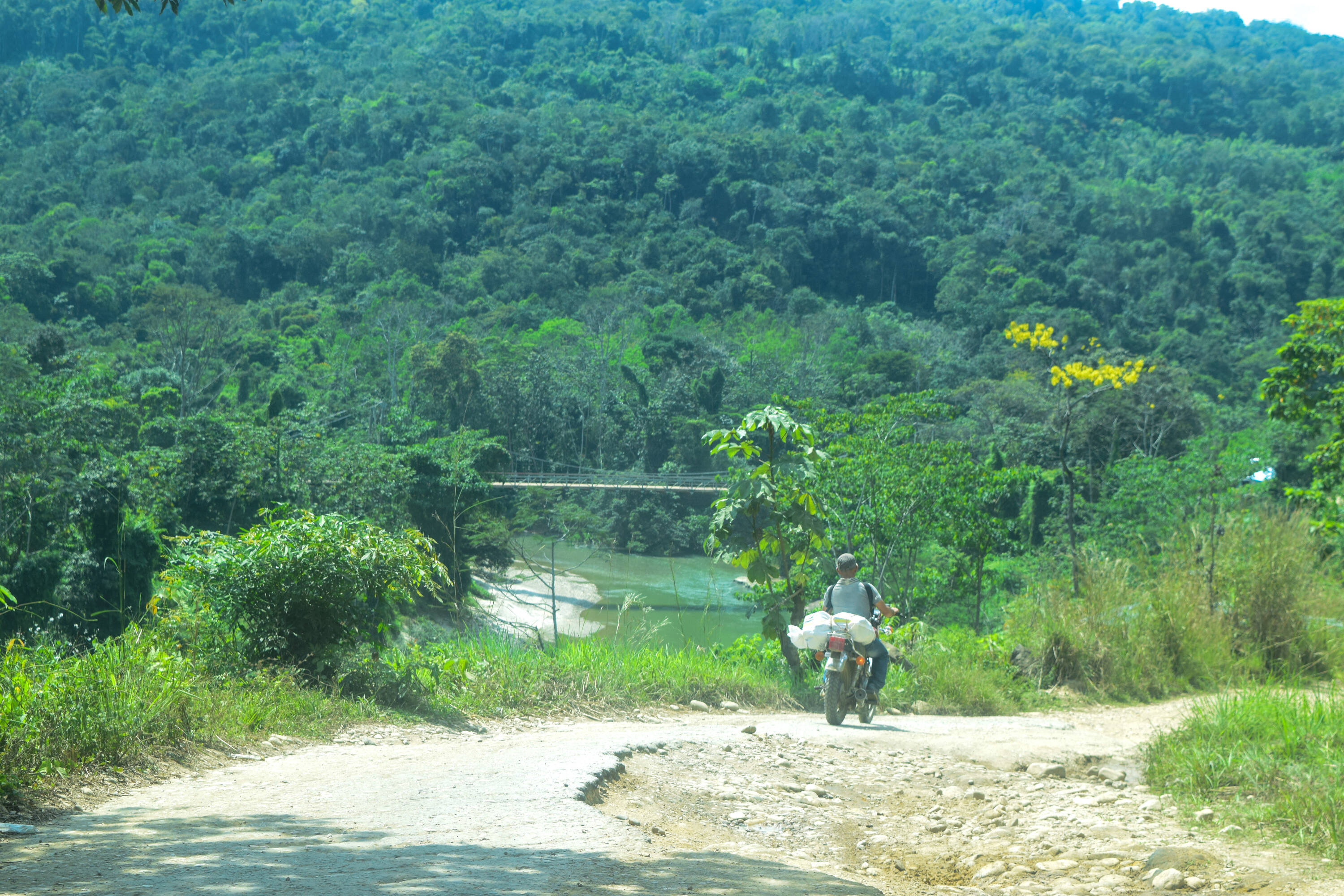'We want to make the Barí people visible, so they can see all the wealth that exists here in Catatumbo, which is not just war.'

These days, the municipality of Ocaña, in Norte de Santander, is hosting the Global Youth Land Forum, an event that brings together leaders from around the world to reflect on land rights, food sovereignty, and youth participation in conservation processes. Among the Colombian voices at the gathering is Humberto Bobarishora Yucarmuto, a 25-year-old Indigenous youth from the Barí people, who came from the Motilón-Barí reservation to represent his community.

The Global Earth Forum - Youth 2025 will be held from June 12 to 14 in Ocaña. Photo: FAO
Humberto is one of seven young Indigenous people leading the "Resowing Memory" initiative, a project launched with support from UNICEF and FAO. It seeks to preserve ancestral knowledge, promote food sovereignty, and strengthen cultural identity among young people in Catatumbo. Through community gardens, traditional medicine textbooks, and training in their language known as Barí Ara, Humberto and his colleagues have managed to weave a process that blends tradition, resilience, and a vision for the future.
In an interview with EL TIEMPO, Humberto speaks about the transformative role of Indigenous youth, the importance of memory, and his commitment to changing the image that has historically marked Catatumbo. “We want people to see the richness of our territory. Here, there isn't just conflict: there is biodiversity, culture, knowledge, art, and a deep spiritual relationship with the land,” he says.

Humberto Bobarishora Yucarmuto, young Barí indigenous leader. Photo: FAO
My name is Humberto Bobarishora Yucarmuto. I am 25 years old. I am a youth leader from the Motilón Barí reservation. Within our organization, we have three youth leaders, and I am one of them, responsible for coordinating initiatives and processes that involve the territory's youth. I work closely with my colleagues to strengthen our identity, protect our territory, and ensure that new generations remain connected to our ancestral culture.
We began this process with UNICEF, which provided us with initial training on topics such as land tenure, rights, and the prevention of ecocidal substances, among others. We were 20 children from the Motilón reservation, but due to the distance and the fact that the training was held in the urban area, not everyone was able to continue. In the end, seven of us remained, the most committed, and we decided to continue. They then told us we could formulate an initiative, present it, and implement it with resources they would provide. That motivated us greatly.
The seven young people who remained set out to raise awareness of the Barí people and showcase the treasure that exists in Catatumbo. We wanted to break away from the image often portrayed on social media and in the media, which associates Catatumbo only with conflict and war. We connected with other social leaders and farmers, who helped us project ourselves. As Indigenous people, we have a different worldview, and we learned a lot during this training process. FAO gave us tremendous confidence.

Catatumbo, in Norte de Santander, is a region historically affected by violence. Photo: Andrés Carvajal
Our initiative is called "Resowing Memory" and is designed to strengthen our identity, preserve our dialect, Barí Ara, and guarantee food sovereignty. We also replicated the knowledge we learned with other young people on the reservation and recovered ancestral knowledge, such as the use of traditional medicines. To do this, we identified the wise men who preserve this knowledge and created a booklet that will remain as a document, because our tradition is oral, but if that connection is lost, at least a record remains. We also created a community garden with native crops such as cassava, plantain, corn, avocado, and also tobacco, which is a sacred plant for us.
What riches does Catatumbo have, and why is it important for the world to know about it beyond the stigma of the conflict? The wealth of Catatumbo is immense. We, as the Barí indigenous people, care for biodiversity, watersheds, flora, and fauna. From a young age, we are taught to protect the land, because it is sacred to us. Our relationship with nature is spiritual. We don't exploit resources; we preserve them. We have a different way of seeing the world, and we want people to understand, through art, painting, and our cultural expressions, that there is life, wisdom, and knowledge here.
Of course, there are things we can't share, because our ancestral law prevents us from divulging certain secrets, but we do want to give other people tools so they can also care for the planet. We want the world to know that Barí is in Catatumbo, where a unique natural phenomenon, thunder, also occurs, which is sacred to us. That, too, is part of our wealth.

Due to its geographical features, Catatumbo could become the country's agricultural breadbasket. Photo: Andrés Carvajal
I see many possibilities, but several factors must be taken into account. First, the geographic location. Second, the projects that are proposed must be sustainable and environmentally friendly, and must not pollute the land or water sources. We don't want more extractive projects. Furthermore, they must come with training for farmers so they understand their rights and responsibilities.
I've seen many cases in the reservation of people who plant plantains or cassava, but then have no way to get them out of the territory, or when they manage to bring them to the city, they want to pay them however they want. That's discouraging. Support and guarantees are needed for the product to thrive. And something very important: respecting the indigenous worldview. We believe in the land's rest. It's not just about planting and planting. We have to let the land breathe. That's part of our ancestral knowledge.
What are your thoughts on land ownership in light of this Global Land Forum for Young People? As a young Indigenous person, I believe that land governance is fundamental. Having secure and legal access to land allows for production, conservation, and peacebuilding from the territories. In this forum, I have learned a lot about the legal mechanisms for accessing land and about our rights. We in the reservation are pushing for a ruling to expand the territory because we feel that the Western world has overexploited the land and that we Indigenous peoples are the ones who truly conserve it. From the moment we are born, we are taught to defend what is in the territory. The FAO has taught us how to defend our rights and how to replicate this knowledge.
We also want young people to be heard more, not only so they can consult us on diagnoses, but so we can participate in decision-making. We feel that young people have more creative, concrete ways of contributing solutions. We have direct experience living in the territories. Sometimes people come from outside who think they know everything, but they don't understand the reality we live in. We want our voice to carry weight, to be guaranteed participation, especially for rural and Indigenous youth, because the cost of reaching these spaces is often overlooked. To come to this forum, for example, some Indigenous people had to travel more than 15 hours. But here we are, demonstrating that young people are present and ready to contribute to the development of the country and our territories.
Environment and Health Journalist
eltiempo





